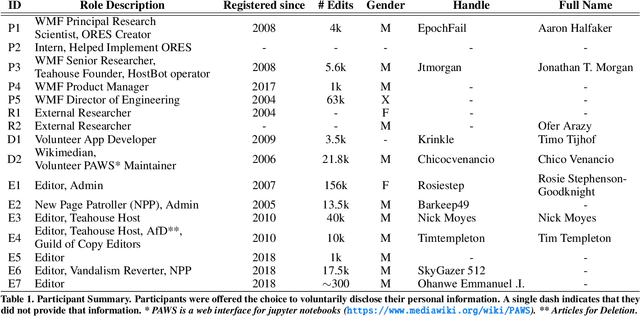Anjali Srivastava
Keeping Community in the Loop: Understanding Wikipedia Stakeholder Values for Machine Learning-Based Systems
Jan 14, 2020
Abstract:On Wikipedia, sophisticated algorithmic tools are used to assess the quality of edits and take corrective actions. However, algorithms can fail to solve the problems they were designed for if they conflict with the values of communities who use them. In this study, we take a Value-Sensitive Algorithm Design approach to understanding a community-created and -maintained machine learning-based algorithm called the Objective Revision Evaluation System (ORES)---a quality prediction system used in numerous Wikipedia applications and contexts. Five major values converged across stakeholder groups that ORES (and its dependent applications) should: (1) reduce the effort of community maintenance, (2) maintain human judgement as the final authority, (3) support differing peoples' differing workflows, (4) encourage positive engagement with diverse editor groups, and (5) establish trustworthiness of people and algorithms within the community. We reveal tensions between these values and discuss implications for future research to improve algorithms like ORES.
 Add to Chrome
Add to Chrome Add to Firefox
Add to Firefox Add to Edge
Add to Edge